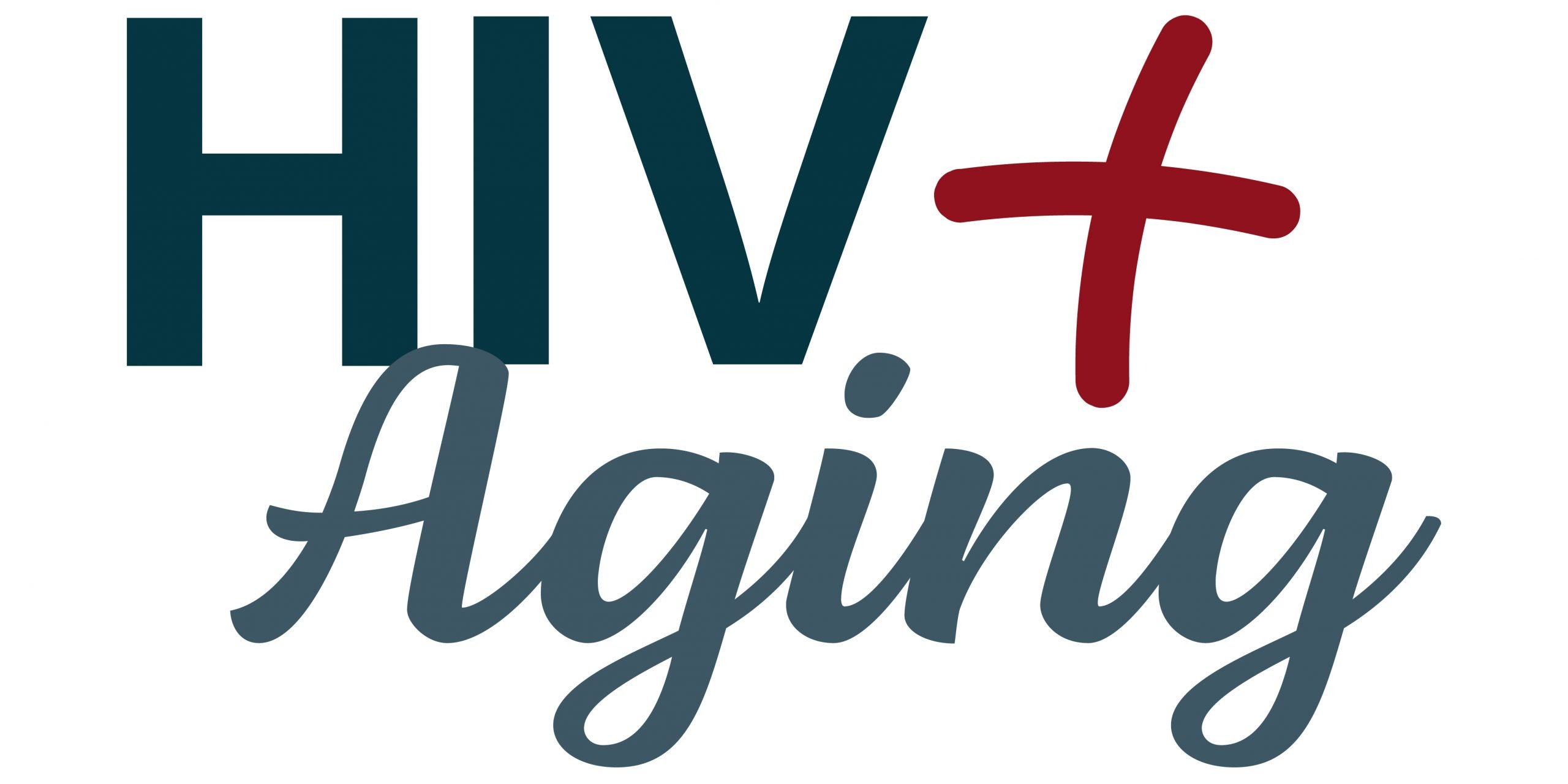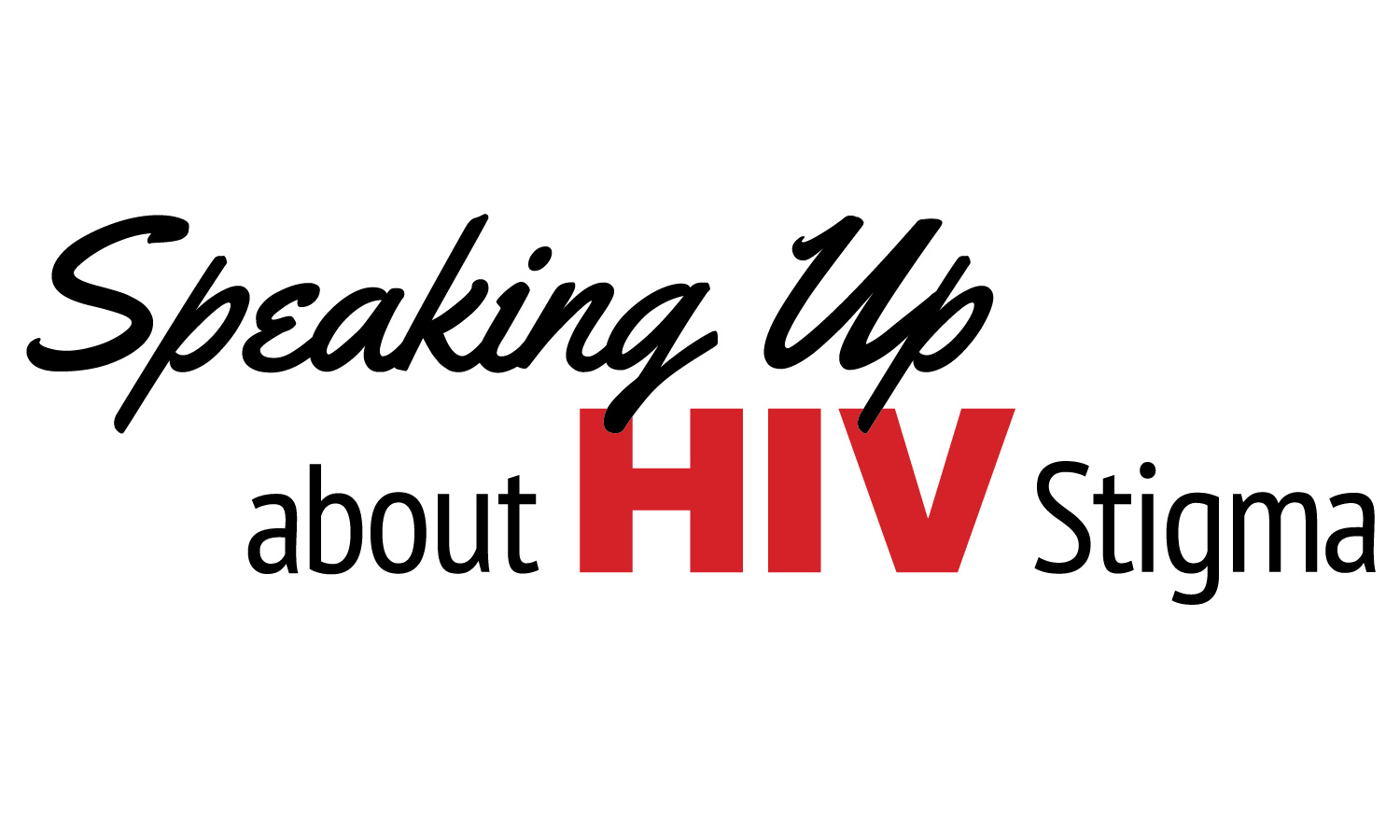A Healthy Life Balance Helps Aging with HIV
Jeff Berry lives his life with HIV through a strong support community and work-life balance
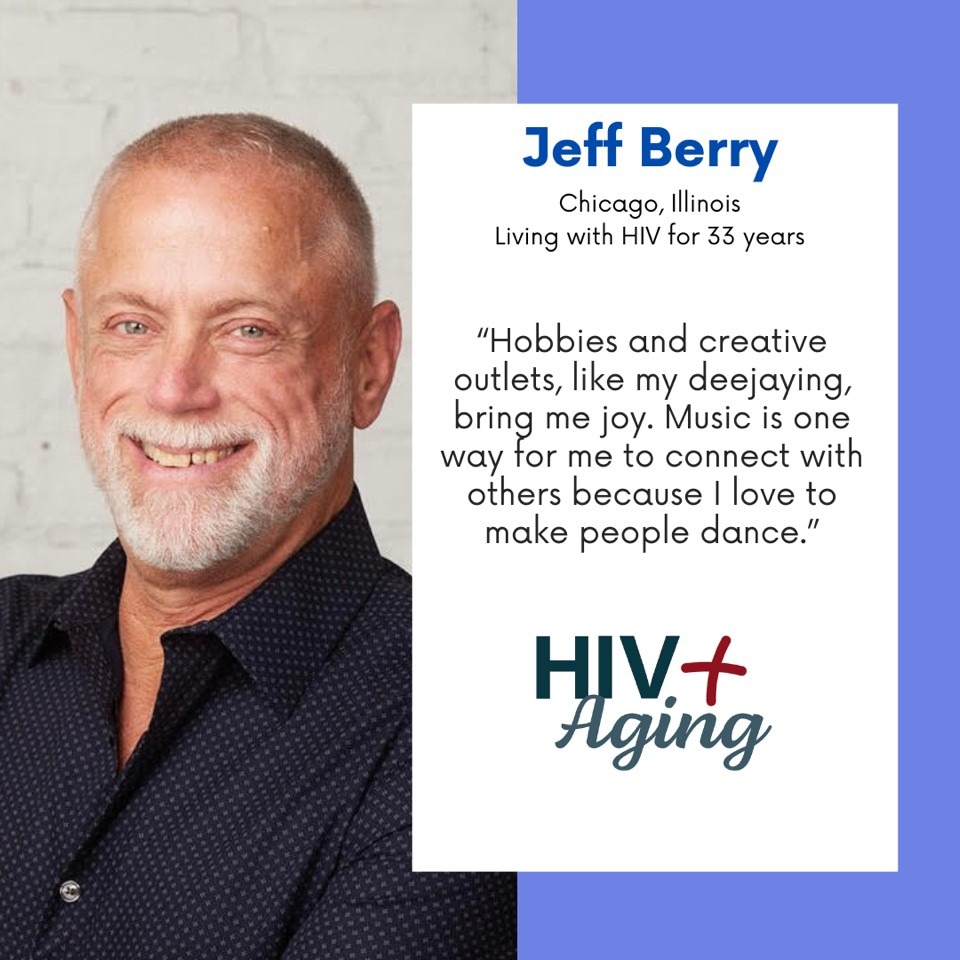
“After living for 33 years with HIV in Chicago, I tell people newly diagnosed with HIV they will be okay. A support community exists to help them, and I will help them find a good healthcare provider.
“Finding the right balance between my personal and professional life helps me age with HIV. Doing rewarding work that has meaning and purpose is vital and contributes to my overall health and sense of well-being. But I also have a life outside of my job.
“Hobbies and creative outlets, like my deejaying, bring me joy. Music is one way for me to connect with others because I love to make people dance. Before the COVID-19 pandemic, I always liked to travel, meet new people, and hear their stories. Now, I join with people in virtual groups to keep connected as we slowly begin to gather again in person.
“Throughout these years of living with HIV, I have had the support of family, friends, and co-workers from the beginning. Those connections have been so important in helping me to live a life free of stigma and shame, especially during the very early years of the HIV/AIDS epidemic when we did not have as much information or the effective treatments that we do today.
“The side effects of lipoatrophy and lipodystrophy, which is a loss of fat tissue from early medications, have been my biggest challenge with HIV. The medications today are much more effective, tolerable, and easy to take.
“Now, as I age with HIV, suppressing the viral load with these effective medications stops both the transmission of HIV to sexual partners and the stigma of HIV.”
A Positive Attitude Simplifies Aging with HIV
Milbert Neeley-Carlisle of East St. Louis, Illinois, lives with HIV after 50 with the help of his husband, family and friends
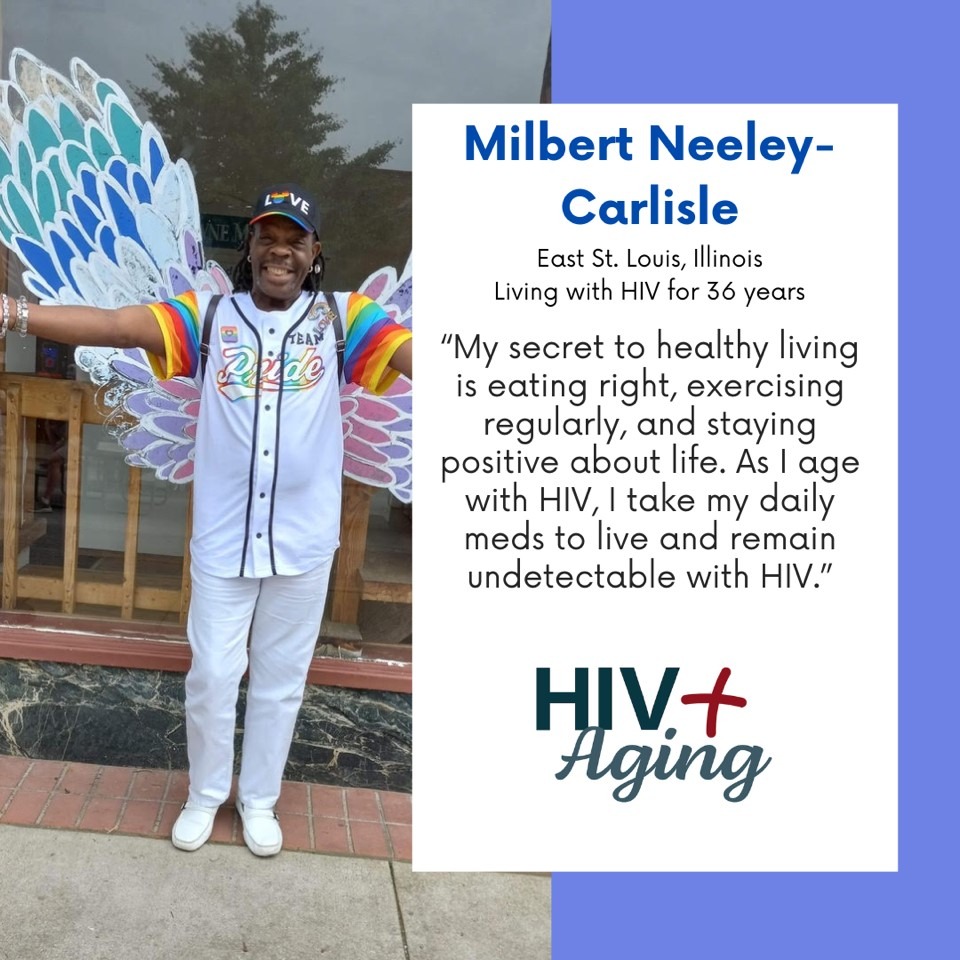
“During my 36 years of living with HIV, my wonderful and supportive husband, a strong church community, and a positive attitude have kept me going.
“I don’t have any challenges now because I faced them head-on. I have – and had – much to live for, an attitude that has helped me stay positive about my life, even with the loss of people and family members along my journey. With many people who loved and cared for me, I always moved forward with my life with the support of my family and close friends.
“Because I love working with others who are HIV positive, I often interact with newly diagnosed people living with HIV. I explain that life is not over because they can live a long and good life once they start and keep taking their meds.
“My secret to healthy living is eating right, exercising regularly, and staying positive about life. As I age with HIV, I take my daily meds to live and remain undetectable with HIV.”
Living a Full Life as a Performer, Facilitator and Latinx Trans Woman with HIV
A dancer most of her life, Lisa Isadora Cruz ages with HIV by helping others in her community
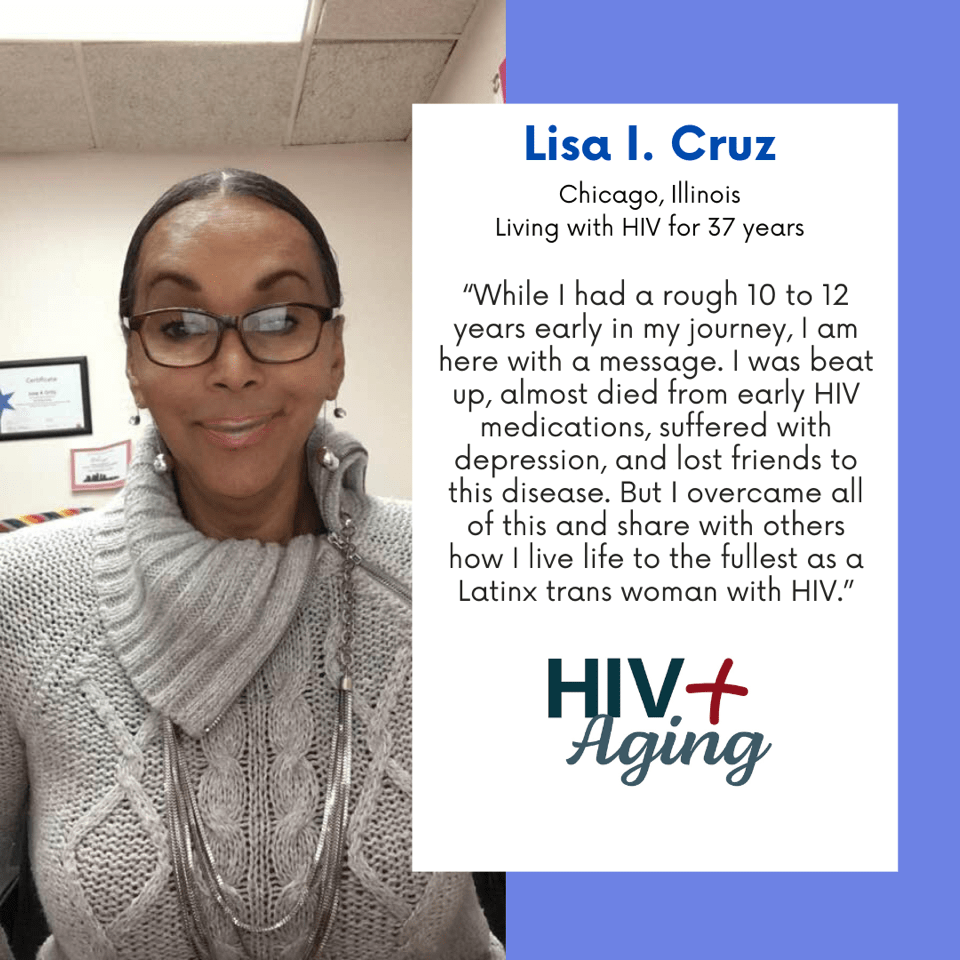
“I was diagnosed with HIV in August 1985 when I lived in New York City. Born in Puerto Rico, I began my transition to a Latinx trans woman at age 14 and lived on the streets after I was forced out of my home. That transition eventually brought me to New York where I began dancing under the stage name of Ginger Valdez.
“I moved to Chicago in 1991 to continue dancing and began working with the trans community in 1994 at the Puerto Rican Cultural Center (PRCC) in Humboldt Park, a community on the West Side of the city. At PRCC TRANS Chicago, I am a coordinator certified by the Chicago Department of Public Health as a tester for HIV. I interact with trans women, and some trans men, of color.
“For six years, I have facilitated the sessions for Transgender Women Involved in Strategies for Transformation (TWIST), offered by PRCC and Howard Brown Health in Chicago. (TWIST is a behavioral intervention developed by the Centers for Disease Control and Prevention to help transgender women who have been living with HIV for at least 90 days to reduce sexually transmitted disease and HIV transmission risk behaviors.)
“People are still in darkness regarding HIV. To overcome that, I go to health fairs and universities to explain the benefits of pre-exposure prophylaxis (PrEP) that people at risk for HIV can take to prevent getting the disease from sex or injection drug use. I tell others living with HIV to take their medicine and stay undetectable, so they don’t have to worry about spreading it.
“While I had a rough 10 to 12 years early in my journey, I am here with a message. I was beat up, almost died from early HIV medications, suffered with depression, and lost friends to this disease. But I overcame all of this and share with others how I live life to the fullest as a Latinx trans woman with HIV.
I was honored in 2020 when the PRCC opened the Lisa Isadora Cruz TRANS Chicago Empowerment Center. In 2021, I was inducted into the Chicago LGBTQ Hall of Fame with every vote from the board of directors.
“Now, at 64, I have been a dancer and performer for more than 40 years and still dance on special occasions, such as World AIDS Day on December 1. I always have people I can talk to, and they can talk to me, including in my support groups and with my daughters, two women not related by blood that I call by that name and have helped over the years.
“As I age with HIV, I advise others that HIV is not a death sentence. Science and technology are amazing because now we have the resources to survive. It’s important as human beings to stay alive and fulfill our dreams for life.”
Stay Connected to Age Well with HIV
Living with HIV for 30 years, Cordelia McKnight takes her medicine and enjoys her family
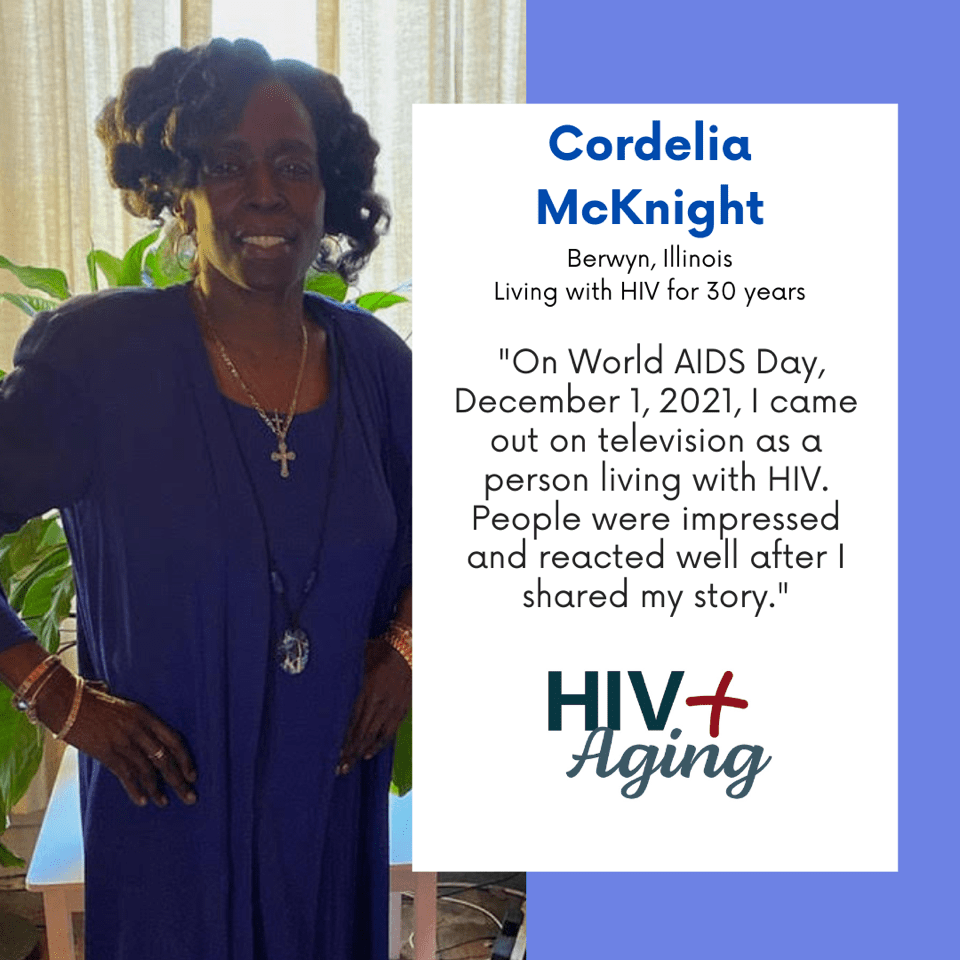
“I have been living with HIV since 1992 and undetectable for eight years. Until 2021, only my family knew I had this disease. I didn’t want anyone to know I had HIV, and disclosure was my biggest challenge.
“All that changed when my coworkers at the University of Illinois-Chicago connected me with people at ABC Channel 7 in Chicago. On World AIDS Day, December 1, 2021, I came out on television as a person living with HIV. People were impressed and reacted well after I shared my story. I told anyone living with HIV to do the same.
“I am part of different support groups at the Ruth M. Rothstein CORE Center in Chicago. (The CORE Center, one of the largest HIV/AIDS clinics in the United States, was established in 1998 as a partnership between John H. Stroger, Jr. (formerly Cook County) Hospital and Rush University Medical Center). I’ve learned through conversations in these groups for women and people living with HIV that I can live a long life – advice I share with newly diagnosed people. HIV is not a death wish.
“As I age with HIV, I follow my regimen and do what the doctors tell me. It has worked for me because I’ll be 58 on October 22. I have never been hospitalized due to HIV. I am always encouraging to people I meet and know that life brings me peace with laughter and time with my family.”
National HIV/AIDS and Aging Awareness Day (NHAAD) is observed each year on September 18. Founded by the AIDS Institute, NHAAD brings attention to issues related to HIV among older Americans, including new infections among older adults and adults over 50 aging with HIV.
Read more.







